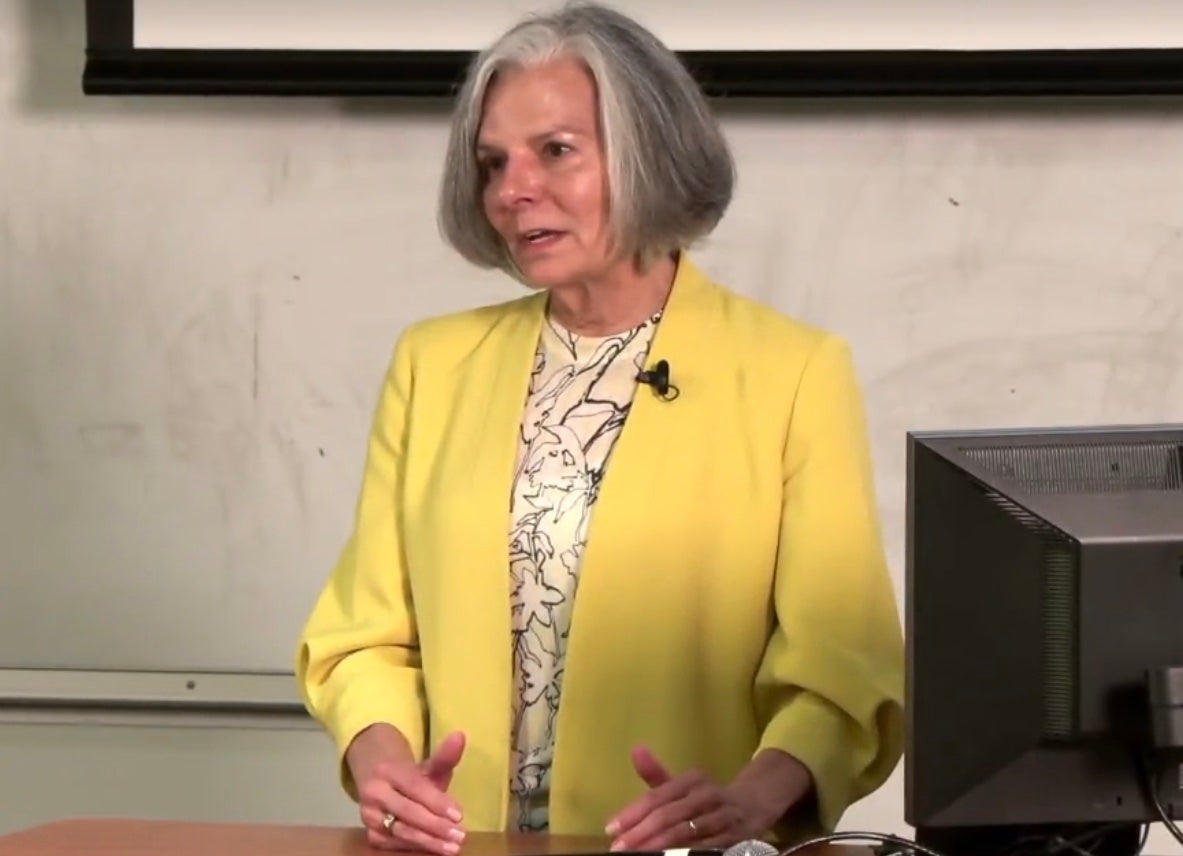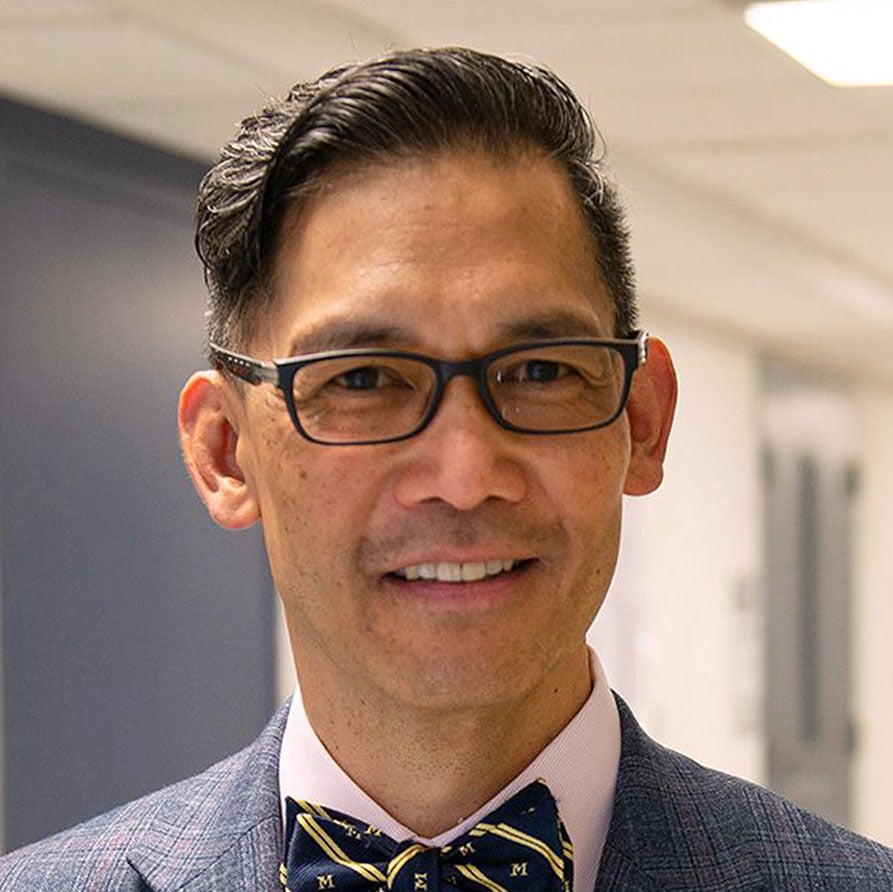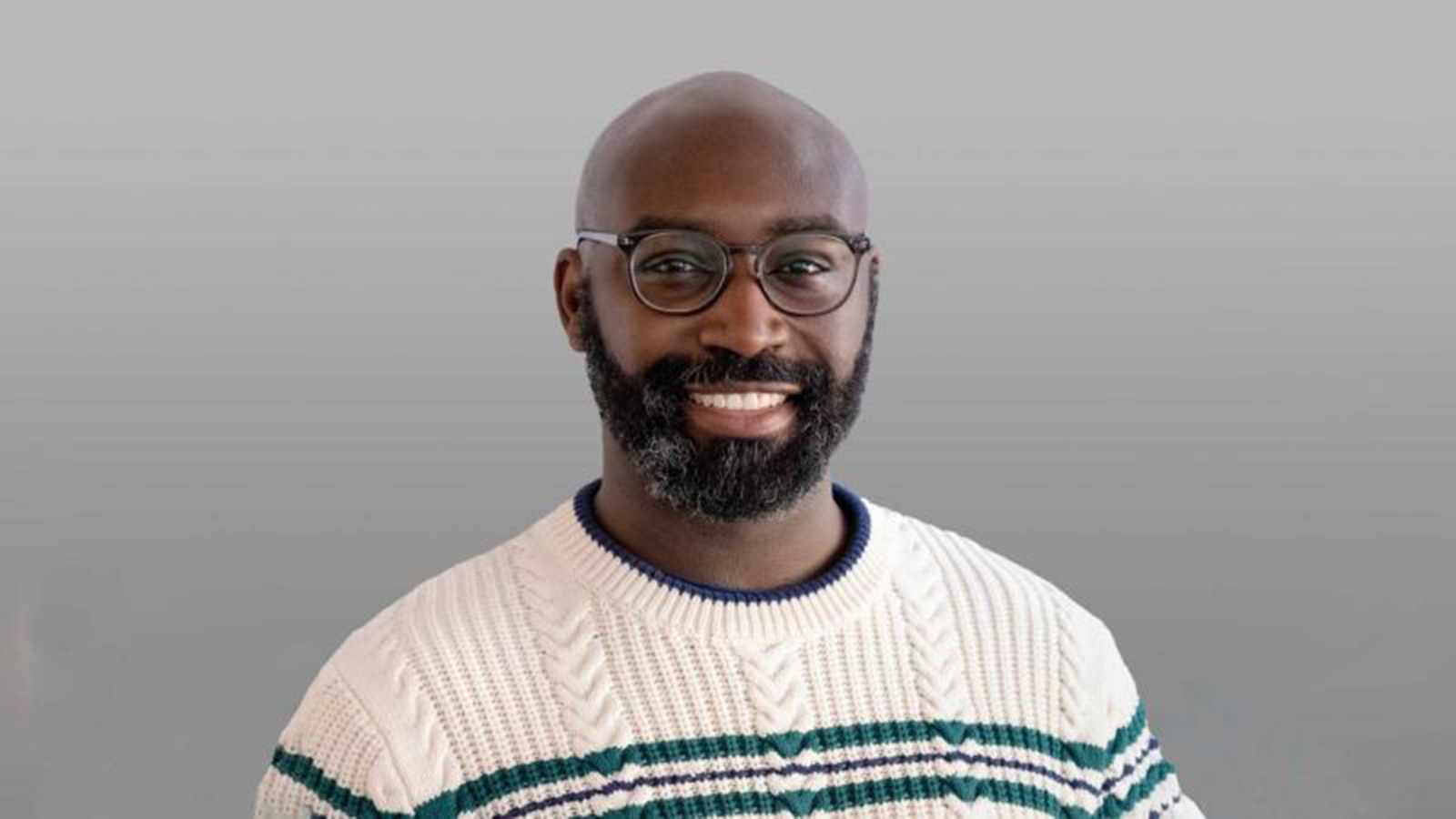Julie Gerberding Discusses Precision Health at 2025 LaMontagne Symposium Keynote Lecture
The title of Dr. Gerberding's lecture was "Beyond One-Size-Fits-All: Rebuilding Trust and Advancing Precision Public Health in the AI Era"

Dr. Julie Gerberding addressing the audience at the 2025 Annual LaMontagne Symposium Keynote Lecture.
Julie Gerberding, MD, MPH, CEO of the Foundation for the National Institutes of Health (FNIH) presented the 2025 LaMontagne Symposium Keynote Lecture on April 1 on the UT Austin campus. The title of her lecture was Beyond One-Size-Fits-All: Rebuilding Trust and Advancing Precision Public Health in the AI Era.
Dr. Gerberding addressed the concepts of precision medicine and precision public health and what that means in today’s environment around medicine and science. She said she began to consider this idea when she saw a recent report about Yale University guidelines on “One size doesn’t fit all” with COVID-19 vaccines.
This notion of one size doesn’t fit all, she realized, can apply to other public health issues, such as other infectious diseases, nutrition, hypertension treatment, and so forth. She noted that while we now have superior tools for precision medicine that can target individual disease risks and treatments, health experts are not approaching public health education with this precision – they are continuing to use the “one size fits all” approach when communicating with patients and the general public about disease.
This, Gerberding suggested, is not an effective method of communication in today’s world. She pointed out that people are bombarded daily with health information and misinformation on social media and the internet, and they want experts in the medical and scientific community who are empathetic and understand their questions and feelings around often-complex public health issues. In her view, simply transmitting health data without a deeper understanding of people’s concerns hasn’t led to the general public’s trust in the guidelines being given to them.
Gerberding said, “We need precision public health communication, and we really need to know how to build and earn trust from the people that we are engaging in these conversations with. . . We have to stand strong on science and we have to also do much better at helping people understand why science is important to them and participate in making that a reality for the non-scientists.”


